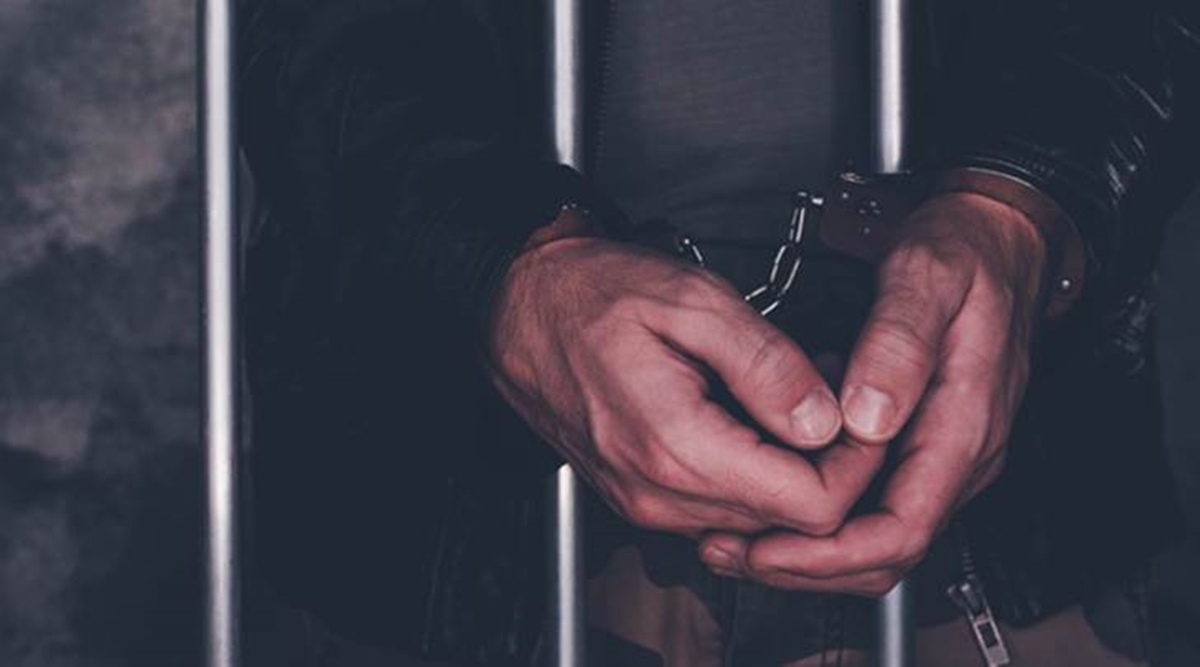 The National Crime Records Bureau data reports the death of over 1,800 prisoners in the year 2018. (File photo)
The National Crime Records Bureau data reports the death of over 1,800 prisoners in the year 2018. (File photo) Michel Foucault, in Discipline and Punish: The Birth of the Prison, wrote, “punishments like imprisonment — mere loss of liberty — has never functioned without a certain additional element of punishment that certainly concerns the body itself: rationing of food, sexual deprivation, corporal punishment, solitary confinement… There remains, therefore, a trace of ‘torture’ in the modern mechanisms of criminal justice.”
The National Crime Records Bureau data reports the death of over 1,800 prisoners in the year 2018. An estimated 70 per cent of prison inmates are undertrials, so it can be safely assumed that a large percentage of those dying in prison are not convicted of any offence.
Overcrowding, delayed medical attention, unhygienic conditions and malnutrition exist in all Indian prisons. Despite the promise of Article 21, that no person shall be denied life or liberty except by the due process of law, the NCRB data reveals that the number of those dying in prison as they await their trials is only going up. Given that incarcerated people are unable to access medical facilities and healthy food, it is the responsibility of the State and the judiciary to ensure that they are only deprived of their liberty and are not exposed to any additional torture in the form of medical deprivation, unhygienic conditions, bad or inadequate food etc. Yet, thousands are dying every year and the prison authorities are not made accountable.
The State of Maharashtra has deemed it fit to continue to be governed by the Prisons Act of 1894. The prison offences mentioned under this Act are only those committed by the inmates. No conduct of the prison authority is criminalised and it grants them immunity and presumes their good faith in acts of extreme neglect that could — and do — result in the death of inmates. Why this should not be acknowledged as extrajudicial torture and made an offence, where the ostensible purpose of imprisonment is reform, one cannot fathom.
Justice Krishna Iyer in the Constitutional Bench judgment in Sunil Batra (I) v. Delhi Administration (1978), held that “the humane thread of jail jurisprudence that runs right through is that no prison authority enjoys amnesty for unconstitutionality. And forced farewell to fundamental rights is an institutional outrage in our system where stone walls and iron bars shall bow before the rule of law”.
This judgment has been followed by several similar judgments by various high courts for the improvement of prison conditions. Yet, in 1995, the conscience of the nation was shocked when Rajan Pillai, who was detained for extradition to Singapore for an economic offence which did not even carry a life sentence, died in Tihar jail. The Leila Seth Commission, appointed by the Delhi administration to inquire into the incident, concluded that poor hygiene and medical negligence led to his liver cirrhosis taking a serious turn. The failure to give him appropriate and timely medical attention, despite his high fever, contributed to his death. The Delhi High Court in Nina Pillai & Ors v. Union of India directed the payment of Rs 10 lakh as compensation to the petitioners and the implementation of the Leila Seth Commission’s recommendations. Yet, as NCRB statistics show, the deaths of inmates in prisons and the under-trial population have only increased.
Father Stan Swamy, 84, who had dedicated his life to the rights of the underprivileged, was rewarded by the State with death due to Covid-19 related complications in judicial custody on July 5. Swamy had been in jail for over eight months and, despite his age and vulnerable condition, was denied medical bail. The NIA court deemed that his health condition was “outweighed by the collective interest of the community”.
There is clearly a huge difference between what the “community” perceives as being in its collective interest and what the prison authorities and judicial establishment perceive as being in the “collective interest of the community”. Upon his arrest last October, Swamy was denied a straw and sipper by the Taloja jail authorities. Despite his obvious inability to hold a glass due to Parkinson’s, the special NIA court kept adjourning his application for the straw and sipper. This caused a civil society uproar, with hundreds sending straws and sippers to the Taloja jail, shaming the authorities into yielding to this basic demand.
Despite the serious allegations of abetting Maoist terrorism levelled against Swamy, the overwhelming condemnation of his arrest and neglectful detention during an unprecedented pandemic shows that we in India see our collective interest in human kindness and dignity. The collective interest of the community is not best served by subjecting undertrials to torturous and medieval prison conditions. The death of Swamy has shaken the conscience of the nation.
Our collective interest can only be served by ordering a judicial inquiry into the conditions of detention and infection of Swamy and the fixing of accountability upon those who failed to ensure his safety and dignity in incarceration. The collective interest of the community also demands an introspection by the judicial institution on whether it is really in public interest to make jail the rule and bail the exception.
By keeping our jails packed with undertrials and allowing emergency parole on the basis of seriousness of the offence alleged and not the vulnerability of the inmate to Covid, are we deterring crimes? Or are we creating a police state, in which a citizen can be imprisoned in inhuman conditions on slim evidence and disproportionate charges? Is this in the collective interest of the community?
The writer is a Delhi-based lawyer
- The Indian Express website has been rated GREEN for its credibility and trustworthiness by Newsguard, a global service that rates news sources for their journalistic standards.

